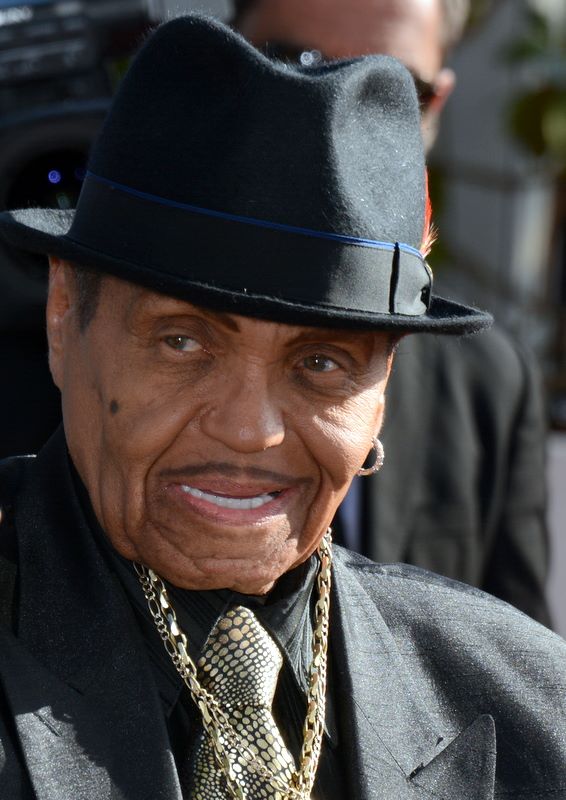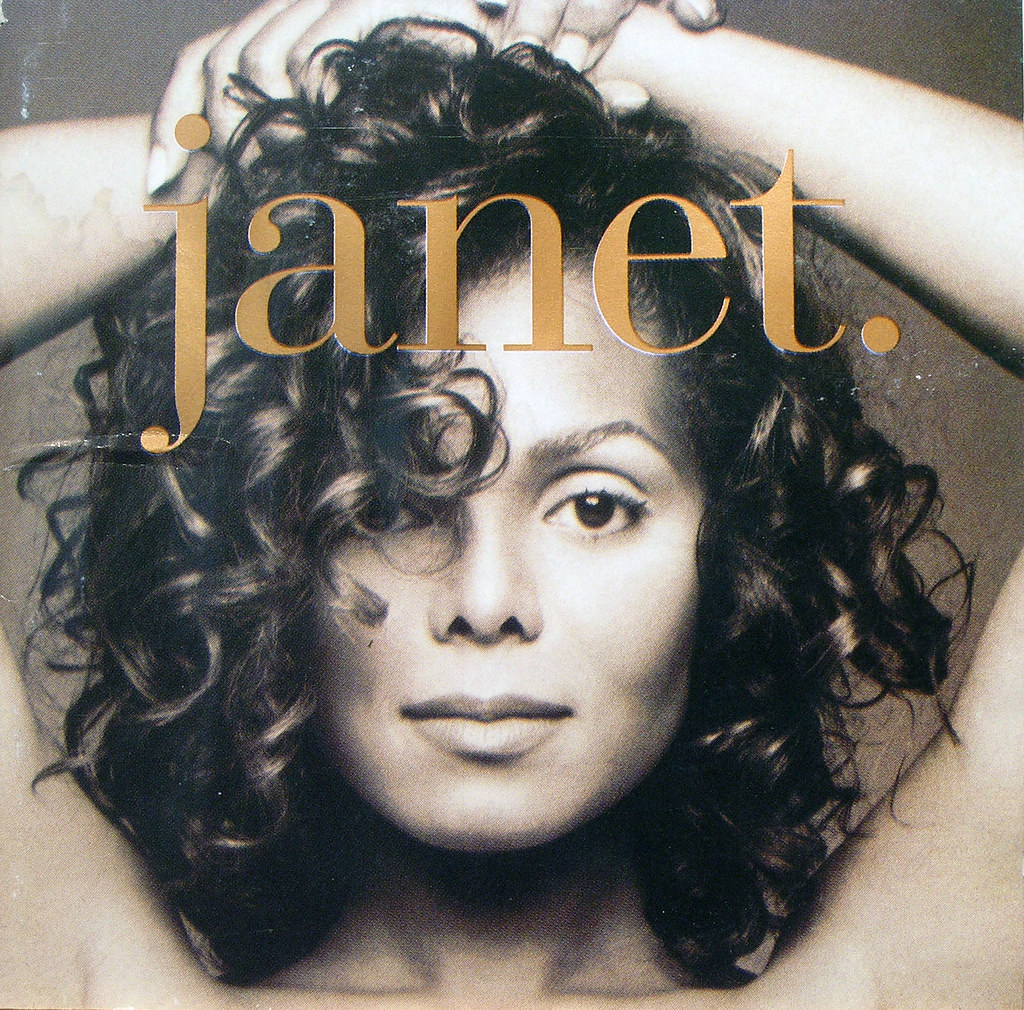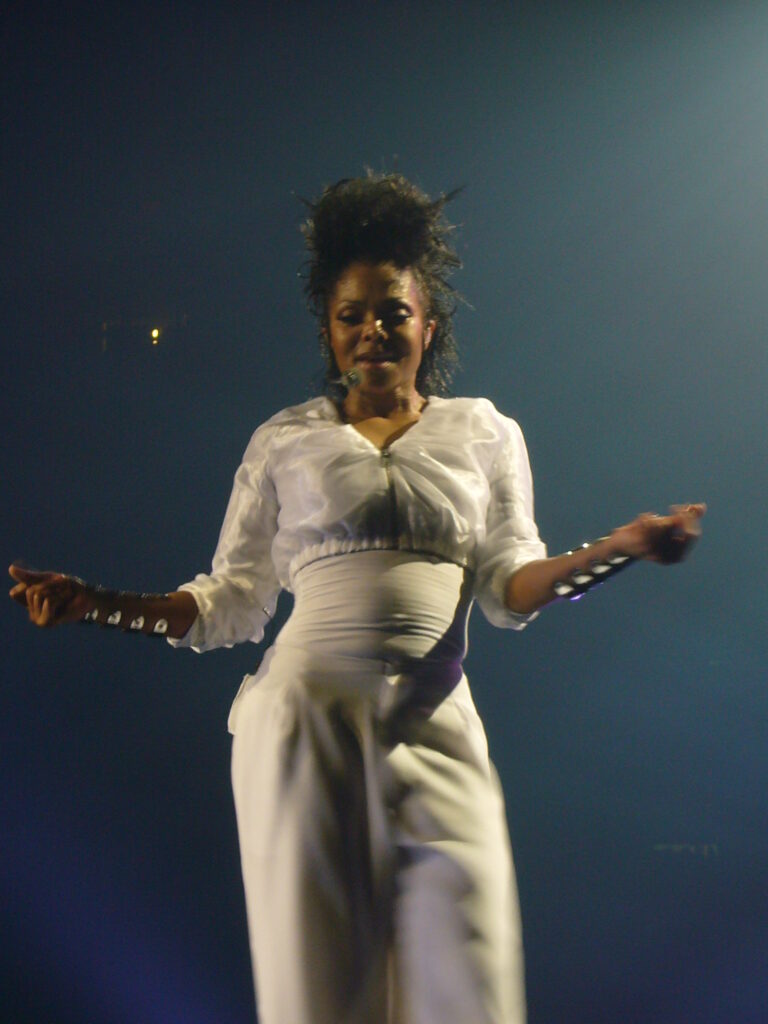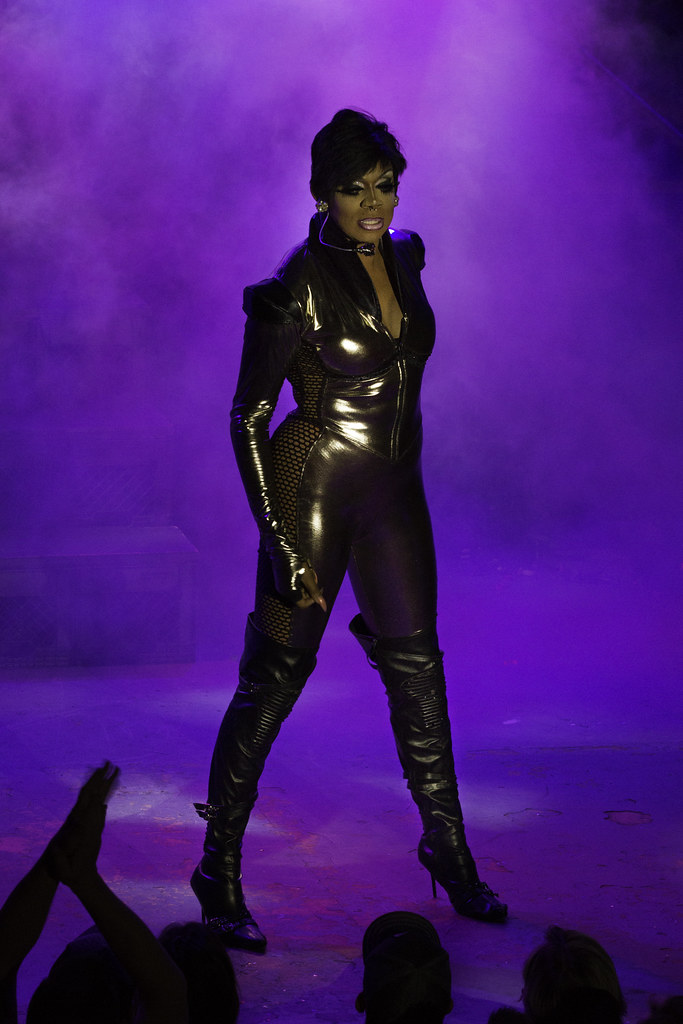
In the constellation of global music icons, few shine with the sustained brilliance and multifaceted impact of Janet Damita Jo Jackson. From her auspicious beginnings within an unprecedented musical dynasty to forging an identity as a singular force in entertainment, Jackson’s journey is a testament to artistic resilience, profound evolution, and an unwavering commitment to her craft. Her career has not merely unfolded; it has been meticulously built, an empire of sound and vision that reshaped popular culture and set new benchmarks for artistry and influence.
More than a performer, Jackson has consistently been a trailblazer, commanding the industry with a sophistication and aspirational quality that resonates with discerning audiences worldwide. Her work consistently reflects a pursuit of excellence, pushing creative boundaries while maintaining an undeniable connection with universal human experiences. This deep dive into the first half of her extraordinary professional life will explore the pivotal eras that solidified her status as a true legend, revealing the intricate details of her transformative journey.
From breaking free of familial shadows to crafting genre-defining albums and cinematic visuals, Jackson’s early career laid the groundwork for an enduring legacy. We delve into the moments that defined her as an artist in her own right, showcasing the ambition, innovation, and personal strength that characterized her rise to unparalleled prominence. This chronicle is not just a retelling of facts; it is an appreciation of a meticulously curated career, a testament to the artist’s dedication to evolving and redefining the very essence of pop stardom.

1. **Early Life & Emergence: Forging a Path in a Musical Dynasty (1966-1985)**: Born into the legendary Jackson family on May 16, 1966, in Gary, Indiana, Janet’s early life was immersed in the world of music, yet her aspirations initially veered elsewhere. The youngest of ten children in a working-class family, she harbored dreams of becoming a horse racing jockey or an entertainment lawyer, plans that she envisioned supporting through acting endeavors. Despite these distinct ambitions, the gravitational pull of her family’s prodigious musical legacy, particularly the burgeoning success of the Jackson 5, would ultimately steer her towards a career in entertainment, an idea she began to seriously consider after recording herself in the studio.
Her performance career began remarkably early, joining her sisters to perform with the Jackson 5 at the MGM Casino on the Las Vegas Strip at just seven years old. By 1976, she had secured a role in the variety show *The Jacksons*, quickly transitioning into more prominent acting roles that captivated audiences. She notably starred as Penny Gordon Woods in the sitcom *Good Times* in 1977, followed by appearances in *A New Kind of Family* and a recurring role as Charlene Duprey on *Diff’rent Strokes* from seasons three to six. Her time on *Fame*, portraying Cleo Hewitt in its fourth season, was colored by the emotional stress of her secret marriage to R&B singer James DeBarge, though she later recalled the cast fondly, despite their playful pranks.
At the tender age of fifteen, her father and manager, Joseph Jackson, facilitated a recording contract with A&M Records, marking her official entry into the music industry. Her self-titled debut album, *Janet Jackson*, released in 1982, was produced by notable figures such as Angela Winbush and René Moore, and overseen by Joseph Jackson himself. It achieved a respectable No. 63 on the Billboard 200 and No. 6 on the R&B albums chart, positioning her as the highest-ranking female vocalist on the Billboard Year-End Black Album Artists in 1983, despite limited promotion. This early phase, characterized by bubblegum pop, established her presence but hinted at the far greater artistic potential yet to be unleashed.
Her second album, *Dream Street*, followed two years later, reaching No. 147 on the Billboard 200 and No. 19 on the R&B albums chart. Its lead single, “Don’t Stand Another Chance,” peaked at No. 9 on Billboard’s R&B singles chart, building upon her initial musical foundation. These formative years, while not her most celebrated commercially, were crucial in laying the groundwork for her eventual artistic independence, showcasing her early forays into the demanding world of entertainment and setting the stage for a dramatic transformation that would define her career.

2. **The Breakthrough: ‘Control’ and the Dawn of Independence (1986-1988)**: Following her second album, a pivotal moment of self-determination arrived as Jackson terminated her business affairs with her family, a courageous step she described as “one of the most difficult things that I had to do.” This bold move signaled her intent to establish an independent artistic identity, a resolve that would dramatically reshape her career trajectory. Seeking a new sonic direction for her third album, she forged a transformative partnership with producers Jimmy Jam and Terry Lewis, a collaboration that would become legendary. Their shared vision was clear: to achieve broad crossover pop appeal while meticulously cultivating a strong foundation within the urban music market, a strategic approach that underscored their ambition for mainstream dominance.
Within a remarkably brief six-week period, Jackson and the visionary duo meticulously crafted her seminal third studio album, *Control*, which was unleashed upon the music world in February 1986. The album’s impact was immediate and profound, catapulting to No. 1 on the Billboard 200 and achieving fivefold Platinum certification from the Recording Industry Association of America (RIAA), ultimately selling over ten million copies globally. Critics lauded *Control* as “remarkably nervy and mature” for a young artist, recognizing its pioneering sound as a refreshing “alternative to the sentimental balladry” prevalent on radio. Comparisons were drawn to Donna Summer, highlighting Jackson’s refusal to accept novelty status and her determined ascent to artistic prominence.
*Control* became a powerhouse of hit singles, spawning five top-five tracks including “What Have You Done for Me Lately,” “Nasty,” “When I Think of You,” “Control,” and “Let’s Wait Awhile,” alongside the top-15 hit “The Pleasure Principle.” “When I Think of You” marked a significant milestone, becoming her first No. 1 hit on the Hot 100, a testament to the album’s undeniable commercial appeal. The album’s critical success was equally impressive, garnering six Billboard Awards, including “Top Pop Singles Artist,” and three coveted Grammy nominations, notably for Album of the Year. Its triumph was further underscored by an unbroken record of four American Music Awards from twelve nominations, cementing its status as a landmark achievement.
At this juncture, Jackson had unequivocally “shaken off the experience of being a shadow Jackson child,” evolving into “an artist in her own right.” The album’s lyrical landscape, rich with themes of empowerment, was profoundly influenced by personal experiences, including an incident of sexual harassment. Jackson eloquently articulated how this moment spurred her to “take a stand,” leading to the genesis of defiant anthems like “Nasty” and “What Have You Done for Me Lately,” born from a powerful “sense of self-defense.” This personal narrative imbued the album with an authentic, relatable strength that resonated deeply with audiences.
Beyond its personal narratives, *Control* was a sonic innovator, masterfully fusing dance-pop and industrial elements with hip-hop and R&B undertones. This groundbreaking blend was instrumental in bridging the gap between the latter two styles, significantly influencing the development of the new jack swing genre. The accompanying music videos, spectacularly choreographed by a then-unknown Paula Abdul (whose work earned her a recording contract), dominated MTV, illustrating the channel’s evolution from rock programming to a more diverse, beat-driven musical landscape. Kyle Anderson of Entertainment Weekly remarked on her instant dominance, stating, “The videos from Control were all over MTV, and Janet established herself as an instantly dominant pop figure talked about in the same sentences as Madonna and her older brother Michael,” unequivocally marking the beginning of an iconic era.
.jpg/800px-JanetJacksonUnbreakableTourSanFran2015_(cropped).jpg)
3. **’Janet Jackson’s Rhythm Nation 1814′: A Socially Conscious Opus (1989-1992)**: Following the monumental success of *Control*, Jackson defied expectations and record label desires for a direct sequel, instead choosing to imbue her fourth album, *Rhythm Nation 1814*, released in September 1989, with a profound socially conscious theme. She articulated her artistic purpose with clarity, stating, “I know an album or a song can’t change the world. I just want my music and my dance to catch the audience’s attention, and to hold it long enough for them to listen to the lyrics.” This ambition to address universal concerns—injustice, illiteracy, crime, and drugs—within a diverse musical framework, rather than focusing solely on personal freedom, marked a significant artistic growth observed by Rolling Stone.
*Rhythm Nation 1814* ascended to No. 1 on the Billboard 200, achieving sixfold Platinum certification from the RIAA and selling over 12 million copies worldwide. Critics hailed it as “the exclamation point on her career,” a diverse collection that masterfully expanded Janet’s range “in every conceivable direction.” The album’s unparalleled commercial success was underscored by a record-breaking streak of seven top-five singles on the Hot 100, including “Miss You Much,” “Rhythm Nation,” “Escapade,” “Alright,” “Come Back to Me,” “Black Cat,” and “Love Will Never Do (Without You).” This made it the first album in history to produce number-one hits across three separate calendar years, a testament to its enduring appeal and widespread impact.
The iconic music video for “Rhythm Nation,” renowned for its intricate choreography and striking warehouse setting, cemented its place as one of the most popular and influential in history. Jackson’s distinctive military ensemble in the video transformed her into an instant fashion icon, embodying the album’s themes of unity and discipline. The video for “Love Will Never Do (Without You)” was equally significant, marking her deliberate shift towards more overt sexual imagery and the midriff-baring style that would become her recognizable trademark, showcasing her growing confidence in her sensuality and artistic expression.
Beyond its commercial triumphs, *Rhythm Nation 1814* garnered immense cultural recognition. It was crowned the highest-selling album of 1990 and awarded a record fifteen Billboard Awards, further cementing its industry dominance. The accompanying full-length *Rhythm Nation 1814* short film earned a coveted Grammy Award, celebrating its cinematic and musical achievements. The subsequent Rhythm Nation World Tour 1990 shattered records, becoming the most successful debut tour in history and achieving the fastest sell-out of Japan’s Tokyo Dome, demonstrating her immense global appeal.
Jackson leveraged her unprecedented platform for philanthropic endeavors, establishing the “Rhythm Nation Scholarship” to channel tour proceeds towards various educational programs. Her profound cultural influence was widely acknowledged; Joel Selvin of the San Francisco Chronicle noted her as a “major role model to teenage girls across the country,” while William Allen of the United Negro College Fund praised her positive impact on young people. Her contributions were further recognized with a star on the Hollywood Walk of Fame, solidifying her status alongside her brother Michael, Madonna, and Tina Turner for her profound achievements and enduring influence on entertainment, marking her as a force to be reckoned with.

4. **’Janet.’, ‘Poetic Justice,’ and the Celebration of Sexual Maturity (1993-1996)**: Having fulfilled her recording contract with A&M Records, Jackson made a monumental move in 1991, signing a groundbreaking multimillion-dollar deal with Virgin Records, estimated between thirty-two and fifty million dollars. This historic agreement immediately established her as the highest-paid recording artist of her time, an unprecedented achievement that solidified her reign and earned her the distinguished title of the “Queen of Pop.” This period of unparalleled financial and creative liberation set the stage for her most personal and sexually explicit work to date, showcasing an artist fully in control of her narrative and image. In 1992, she further extended her collaborative reach, lending guest vocals to Luther Vandross’s “The Best Things in Life Are Free,” a top-ten Billboard hit that achieved international success, underscoring her versatility and demand.
Jackson’s fifth studio album, provocatively titled *Janet.*, debuted in May 1993, opening at number one on the Billboard 200. This achievement made her the first female artist in the Nielsen SoundScan era to command such an impressive chart entry, signaling a new level of commercial and critical dominance. The album achieved sixfold Platinum certification by the RIAA, selling over 14 million copies worldwide, a testament to its widespread appeal and the public’s eagerness to witness her artistic evolution. *Janet.* spawned five official singles and four promotional singles, each receiving various certifications and contributing to the album’s immense global success.
The lead single, “That’s the Way Love Goes,” became an instant classic, winning the Grammy Award for Best R&B Song and dominating the Billboard Hot 100 for an astounding eight consecutive weeks. Other singles, “Again” and “If,” also soared to number one and within the top four respectively, further showcasing the album’s commercial prowess. *Janet.* was a masterclass in genre experimentation, seamlessly blending contemporary R&B, deep house, swing jazz, hip-hop, rock, and pop. Billboard lauded her ability to deliver each genre “with consummate skill and passion,” highlighting her expanded artistic range and confidence. Jackson assumed a larger role in both songwriting and production, explaining her imperative “to write all the lyrics and half of the melodies” and candidly discussing the intentional incorporation of her sexuality into the album’s content.
Rolling Stone insightfully recognized the cultural significance of *Janet.*, declaring, “As princess of America’s black royal family, everything Janet Jackson does is important.” They noted that her announcement of sexual maturity on the album constituted a “cultural moment,” underscoring the profound impact of her artistic choices. This era was further defined by her cinematic debut in July 1993 in the film *Poetic Justice*. Despite mixed critical reviews for the film, her performance was lauded as “beguiling” and “believably eccentric,” proving her versatility beyond the music stage. Her ballad “Again,” written specifically for the film, garnered prestigious Golden Globe and Academy Award nominations for “Best Original Song,” cementing her burgeoning influence across different entertainment mediums.
In a defining visual statement, Jackson appeared topless on the cover of Rolling Stone in September 1993, with her breasts artfully covered by her then-husband, René Elizondo Jr. This iconic photograph, the original version of the cropped image used on the *Janet.* album cover, instantly became one of the most recognizable and widely discussed magazine covers, as reported by The Vancouver Sun. It solidified her dual status as both a role model and a sex symbol, reflecting her confident embrace of her sexuality and artistic freedom. The Janet World Tour, launched in support of the album, despite some criticism regarding vocal spontaneity, earned widespread acclaim for its extraordinary showmanship, blurring the lines between “stadium-size pop music concerts and full-scale theatrical extravaganzas” and reaffirming her status as a premier live performer.
During this intense period, Jackson provided unwavering moral support to her brother Michael amidst a child sex abuse scandal, defending him publicly and refuting abuse allegations against their parents made by her sister La Toya. Her collaboration with Michael on “Scream,” the lead single from his 1995 album *HIStory*, was a powerful artistic response to media scrutiny. The song made history by becoming the first ever to debut within the top five on the Hot 100 singles chart. Its accompanying music video, directed by Mark Romanek, set a Guinness World Record as the “Most Expensive Music Video Ever Made,” costing an astounding $7 million, and won a Grammy Award for Best Short Form Music Video in 1996, further cementing her innovative visual legacy.
Her first compilation album, *Design of a Decade: 1986–1996*, released in 1995, peaked at number three on the Billboard 200 and was certified double Platinum by the RIAA. The lead single, “Runaway,” achieved its own historic milestone, becoming the first song by a female artist to debut within the top ten of the Hot 100, ultimately reaching number three. The Boston Globe aptly summarized her continued influence, noting, “If you’re talking about the female power elite in pop, you can’t get much higher than Janet Jackson, Bonnie Raitt, Madonna and Yoko Ono. Their collective influence… is beyond measure. And who could dispute that Janet Jackson now has more credibility than brother Michael?” This era culminated with her renewing her contract with Virgin Records for a reported $80 million, officially establishing her as the then highest-paid recording artist in history, surpassing even the unparalleled $60 million contracts of Michael Jackson and Madonna, a testament to her unmatched commercial power and artistic significance.

5. **’The Velvet Rope’: Introspection, Identity, and Advocacy (1997-1999)**: As the late 1990s unfolded, Janet Jackson embarked on a profound personal and artistic exploration, marked by a period of severe depression and anxiety. This deeply personal struggle became the raw, emotional core of her sixth album, *The Velvet Rope*, released in October 1997. The album’s release was preceded by a dramatic shift in her public image, characterized by vibrant red hair, distinctive nasal piercings, and new tattoos, signaling a departure into a more introspective and bold artistic phase. This transformation was not merely aesthetic; it mirrored the album’s thematic depth, which primarily centered on the universal human need to belong, delving into complex social issues and personal vulnerabilities with unprecedented candor.
*The Velvet Rope* ventured into challenging lyrical territory, addressing sensitive subjects such as same-sex relationships, homophobia, and domestic violence. Beyond these crucial social commentaries, the album also explored themes of sadomasochism, presenting a far more sexually explicit and raw narrative than her previous release, *Janet.*. The record was met with overwhelming critical acclaim, with The New York Times hailing it as “her most daring, elaborate and accomplished album.” Billboard echoed this sentiment, declaring it “the best American album of the year and the most empowering of her last five,” recognizing its groundbreaking artistic merit and profound emotional resonance.
Commercially, *The Velvet Rope* debuted at number one on the Billboard 200 and achieved triple Platinum certification by the RIAA, ultimately selling over eight million copies worldwide. The lead single, “Got ’til It’s Gone,” released in September 1997, featured guest vocals from folk icon Joni Mitchell and rapper Q-Tip. Its evocative music video, depicting a pre-Apartheid celebration, earned a Grammy Award for Best Short Form Music Video, adding to her impressive collection of accolades. “Together Again” became a global phenomenon, marking Jackson’s eighth number-one hit on the Billboard Hot 100, placing her in an elite league with artists like Elton John and Diana Ross. It spent a record-breaking forty-six weeks on the Hot 100 and nineteen weeks on the United Kingdom’s singles chart, selling six million copies worldwide to become one of the best-selling singles of all time. “I Get Lonely” further solidified her chart dominance, peaking at number three on the Hot 100 and receiving a Grammy nomination for Best Female R&B Vocal Performance. This track also made history as Jackson’s eighteenth consecutive top-ten hit, a remarkable achievement surpassed only by Elvis Presley and The Beatles, cementing her unparalleled consistency.
Additional singles from the album, including “Go Deep” and the ballad “Every Time,” which sparked controversy for its display of nudity in its music video, continued to push boundaries. *The Velvet Rope* firmly established Jackson as a prominent gay icon, celebrated for its bold themes surrounding homosexuality and its direct protest against homophobia. Tracks like “Together Again,” lauded as a “post-Aids pop song,” and “Free Xone,” described as “a paean to homosexuality” and an “anti-homophobia track,” were praised for their poignant lyrical content. Furthermore, Jackson’s audacious lesbian reinterpretation of Rod Stewart’s “Tonight’s the Night” underscored her commitment to inclusivity and artistic courage, making her a powerful voice for the LGBTQ+ community.
Recognizing its profound social impact, *The Velvet Rope* received an award for “Outstanding Music Album” at the 9th Annual GLAAD Media Awards and was honored by the National Black Lesbian and Gay Leadership Forum. Demonstrating her philanthropic spirit, a portion of the proceeds from “Together Again” was generously donated to the American Foundation for AIDS Research. Jackson then embarked on The Velvet Rope Tour, a global spectacle traveling across Europe, North America, Asia, Africa, New Zealand, and Australia. The tour received widespread critical acclaim for its theatricality, intricate choreography, and Jackson’s exceptional vocal performance. It was famously likened to “the ambition and glamour of a Broadway musical,” with critics noting it was “only fitting that the concert program credits her as the show’s ‘creator and director’,” highlighting her visionary control over every aspect of her artistry.
The tour’s HBO special, *The Velvet Rope: Live in Madison Square Garden*, was a ratings juggernaut, attracting over fifteen million viewers and surpassing the ratings of all four major networks among subscribed viewers. The concert special earned an Emmy Award from four nominations, further solidifying her status as a multifaceted entertainer. Jackson continued her philanthropic efforts, donating a portion of the tour’s sales to America’s Promise, an organization founded by Colin Powell to support disenfranchised youth. As the tour concluded, Jackson diversified her portfolio with several high-profile collaborations, including Shaggy’s “Luv Me, Luv Me,” and “Girlfriend/Boyfriend” with Blackstreet, and “What’s It Gonna Be?!” with Busta Rhymes, the latter two music videos becoming among the most expensive ever produced. “What’s It Gonna Be?!” soared to number one on the Billboard Hip-Hop Singles and Hot Rap Tracks charts, reaching the top three of the Hot 100. This era culminated in Jackson receiving the prestigious Legend Award at the 1999 World Music Awards for her “outstanding contribution to the pop industry,” and Billboard ranking her as the second most successful artist of the decade, behind Mariah Carey, a true testament to her enduring impact and unparalleled success.

6. **’All for You’ and a New Millennium Reign (2000-2003)**: As the new millennium dawned, Janet Jackson continued to redefine her artistic landscape, merging her unparalleled musical prowess with a captivating presence on the silver screen. In July 2000, she graced her second film, *Nutty Professor II: The Klumps*, starring opposite the iconic Eddie Murphy as Professor Denise Gaines. Director Peter Segal lauded her casting, affirming that Jackson was a “natural fit, and an obvious choice” for the role, a testament to her versatile talent beyond the recording studio.
The film swiftly climbed to the top of the box office charts, becoming her second consecutive movie to debut at number one and ultimately grossing an impressive estimated $170 million worldwide. This cinematic triumph was further bolstered by her single “Doesn’t Really Matter,” which was prominently featured on the film’s soundtrack. The track became her ninth number-one single on the Hot 100, showcasing her undiminished ability to captivate audiences across multiple entertainment platforms.
Preceding the release of her highly anticipated seventh album, Jackson received an extraordinary honor from MTV, becoming the recipient of the network’s inaugural “MTV Icon” ceremony. This prestigious event was dedicated to celebrating her “significant contributions to music, music video and pop culture while tremendously impacting the MTV Generation.” The tribute featured glowing commentary from contemporaries and successors such as Britney Spears, Jennifer Lopez, Aaliyah, and Jessica Simpson, alongside dynamic performances by ‘N Sync, Pink, Destiny’s Child, Usher, and others, solidifying her status as a generational trailblazer.
Further cementing her monumental legacy, the American Music Awards bestowed upon Jackson the esteemed Award of Merit, recognizing her for “her finely crafted, critically acclaimed and socially conscious, multi-platinum albums.” These accolades underscored her sustained relevance and profound influence as she prepared to unveil her next musical chapter, demonstrating that her impact transcended mere chart success, resonating deeply within the industry and with a global fanbase.
Jackson’s seventh studio album, *All for You*, arrived in April 2001, immediately soaring to number one on the Billboard 200 with an astounding 605,000 copies sold in its first week. This remarkable achievement marked the highest first-week sales of her illustrious career and ranked among the highest ever recorded by a female artist, illustrating her unparalleled commercial power. The album represented a triumphant return to her signature upbeat dance style, earning widespread critical acclaim for its infectious energy and innovative sound.
Critics praised Jackson for immersing herself in “textures as dizzying as a new infatuation,” highlighting her unique ability to innovate rather than merely follow prevailing trends, particularly at a time when other artists were striving to “match the angularity of hip-hop.” *All for You* was swiftly certified double Platinum by the RIAA, a testament to its immense popularity and critical reception. The album’s lead single, “All for You,” made an indelible mark, debuting at number fourteen on the Hot 100 and setting a new record for the highest debut by a single not yet commercially available.
MTV, recognizing her unprecedented radio dominance, crowned Jackson the “Queen of Radio” as the single made airplay history, being “added to every pop, rhythmic and urban radio station” within its initial week. The song shattered the overall airplay debut record with a staggering first-week audience of seventy million, rocketing to number nine on the Radio Songs chart. It held the top spot on the Hot 100 for an impressive seven weeks and achieved top-ten status in eleven other countries, earning a coveted Grammy Award for Best Dance Recording. The album’s second single, “Someone to Call My Lover,” also performed strongly, peaking at number three on the Hot 100, while the track “Son of a Gun (I Betcha Think This Song Is About You)” ingeniously incorporated a sample of Carly Simon’s iconic “You’re So Vain,” featuring Simon herself along with Missy Elliott on its remixes, demonstrating Jackson’s continued artistic ingenuity.
In July 2001, Jackson embarked on the highly anticipated All for You Tour, a spectacular journey across the United States and Japan. This electrifying tour was also broadcast as a concert special for HBO, drawing an impressive twelve million viewers and showcasing her renowned stage presence to a massive audience. Although planned European and Asian dates regrettably had to be canceled following the tragic September 11 terrorist attacks, her performances were universally lauded. The Los Angeles Times commended her extraordinary showmanship, and Richard Harrington of The Washington Post enthusiastically stated that Jackson’s performance surpassed her contemporaries.
While Bob Massy of Spin magazine observed that her dancers “threw crisper moves” and her supporting singers were mixed nearly as high, he ultimately declared, “Janet cast herself as the real entertainment,” underscoring her undeniable star power. Demonstrating her unwavering commitment to philanthropy, Jackson generously donated a portion of the tour’s proceeds to the Boys & Girls Clubs of America, reinforcing her dedication to empowering youth. The following year, speculation arose regarding her rumored relationships with Justin Timberlake, actor Matthew McConaughey, and record producer Jermaine Dupri, adding a touch of personal intrigue to her public persona. She lent her distinctive vocals to Timberlake’s debut solo album *Justified* on the track “(And She Said) Take Me Now,” a song initially envisioned as a single, and collaborated with reggae artist Beenie Man on “Feel It Boy,” produced by the Neptunes, further highlighting her expansive musical collaborations.

7. **Super Bowl XXXVIII Controversy and ‘Damita Jo’ (2004-2005)**: The year 2004 marked an unexpected and seismic shift in Janet Jackson’s career trajectory, instigated by her highly anticipated performance at the Super Bowl XXXVIII halftime show in February. Chosen by both the National Football League and MTV, Jackson delivered a mesmerizing medley of her hits, including “All for You” and “Rhythm Nation,” along with an excerpt from “The Knowledge.” The performance culminated with a surprise duet with Justin Timberlake on “Rock Your Body,” a moment that would soon ignite a global media firestorm.
As Timberlake sang the provocative lyric, “I’m gonna have you naked by the end of this song,” he tore a section of her costume, momentarily exposing her right breast to an estimated 140 million viewers. This unprecedented incident, immediately dubbed “nipple gate” by the media, plunged Jackson into the center of a monumental controversy that reshaped public discourse around live television broadcasts and celebrity image.
Following the performance, Jackson promptly issued an apology, explaining that the exposure was entirely accidental and unintended, clarifying that Timberlake was only meant to pull away a bustier, leaving a red-lace bra intact. She expressed deep regret, stating, “I am really sorry if I offended anyone. That was truly not my intention … MTV, CBS, the NFL had no knowledge of this whatsoever, and unfortunately, the whole thing went wrong in the end.” Timberlake echoed her sentiments, attributing the incident to a “wardrobe malfunction,” while CBS, the NFL, and MTV vehemently denied any prior knowledge or responsibility.
The Federal Communications Commission responded with unprecedented severity, levying substantial fines against all involved companies and initiating an eight-year investigation, ultimately losing its appeal for a $550,000 fine against CBS. The aftermath had immediate and far-reaching consequences for Jackson; while CBS permitted Timberlake to appear at the 46th Grammy Awards, Jackson was conspicuously barred from attending, forcing her to withdraw from her scheduled role as a presenter.
The controversy also halted plans for Jackson to star in a biographical film about singer and activist Lena Horne, which was to be produced by ABC. Reports indicated Horne’s displeasure with the incident, though Jackson’s representatives maintained she withdrew from the project willingly. Even a Mickey Mouse statue, originally installed at Walt Disney World theme park to honor her legacy and wearing her iconic “Rhythm Nation” outfit, was removed following the controversial performance, underscoring the severity of the backlash and its pervasive reach.

Despite the intense scrutiny, Jackson forged ahead with the release of her eighth studio album, *Damita Jo*, in March 2004, titled after her middle name. The album debuted strongly at number two on the Billboard 200, a testament to her enduring fanbase. It received a mixed to positive critical reception; some reviewers praised the sonic innovation of selected songs and Jackson’s distinctive vocal harmonies, while others criticized its frequent and explicit themes of carnality.
Regrettably, a significant portion of critical reviews controversially focused more on the Super Bowl incident itself rather than providing an objective assessment of the album’s musical content. Within a month, *Damita Jo* was certified Platinum by the RIAA, ultimately selling over three million copies worldwide, demonstrating a remarkable commercial resilience despite the unprecedented challenges she faced.
The album’s commercial performance was severely hampered by an industry-wide blacklisting from radio and music channels, a punitive measure reportedly orchestrated in part at the behest of CBS CEO Les Moonves. This boycott involved powerful conglomerates, including Viacom and CBS, along with their subsidiaries MTV, Clear Channel Communications, and Infinity Broadcasting, the latter two being among the largest radio broadcasters in the nation. The blacklist was implemented even before *Damita Jo*’s release and persisted through her subsequent two albums, creating an unparalleled obstacle to her promotional efforts.
A senior executive from Viacom, which owns MTV and VH1, candidly commented on the situation, stating that they were “absolutely bailing on the record. The pressure is so great, they can’t align with anything related to Janet. The high-ups are still pissed at her, and this is a punitive measure.” This unprecedented industry blockade was a direct response to the Super Bowl incident, effectively stifling the album’s potential. Prior to the controversy, *Damita Jo* had been widely anticipated to outsell its predecessor, *All for You*, highlighting the profound impact of the blacklisting.
Despite these formidable barriers, the album’s three singles received positive reviews from critics, who largely believed they would have achieved exceptional chart positions under different circumstances. Billboard acknowledged this, reporting that *Damita Jo* “was largely overshadowed by the Super Bowl fiasco…. The three singles it spawned were blacklisted by pop radio—they were also the album’s biggest highlights,” articulating the injustice of the situation.
For the album’s promotion, Jackson continued to exhibit remarkable professionalism and resilience, appearing as a host on *Saturday Night Live* where she also performed two songs, and making a memorable guest star appearance on the popular sitcom *Will & Grace*, portraying herself. She received several significant career accolades during this challenging period, including the “Legend Award” at the Radio Music Awards, the “Inspiration Award” from the Japan Video Music Awards, a “Lifetime Achievement Award” at the Soul Train Music Awards, and a Teen Choice Awards nomination for “Favorite Female,” demonstrating that her artistic contributions were still widely recognized and cherished.
In November 2004, she was honored as a distinguished role model by 100 Black Men of America, Inc., receiving the organization’s Artistic Achievement Award for “a career that has gone from success to greater success.” The organization notably addressed criticism for honoring Jackson amidst the Super Bowl incident, asserting that “an individual’s worth can’t be judged by a single moment in that person’s life,” a powerful statement of support. Further cementing her philanthropic commitment, in June 2005, she was honored with a Humanitarian Award by the Human Rights Campaign and AIDS Project Los Angeles, in recognition of her dedicated involvement in raising money for AIDS charities, showcasing her unwavering social conscience even in the face of adversity.

8. **The Reflective ’20 Y.O.’ Period (2006-2007)**: Following the tumultuous period surrounding the Super Bowl controversy and the release of *Damita Jo*, Janet Jackson channeled her enduring artistic spirit into her ninth studio album, *20 Y.O.*. The recording process commenced in 2005, with Jackson collaborating over several months in the following year with esteemed producers Jermaine Dupri, Jimmy Jam, and Terry Lewis, aiming to craft a record that resonated with her two-decade legacy in the music industry.
The album’s title, *20 Y.O.*, was a poignant and deliberate reference to the twenty years that had elapsed since the release of her groundbreaking album *Control*. It was conceived as a “celebration of the joyful liberation and history-making musical style” that defined her earlier, transformative work, inviting listeners to reflect on her journey and continued evolution as an artist.
To promote the album, Jackson engaged in a robust series of public appearances, including features in various magazines and performances on the *Today Show* and at the prestigious Billboard Awards. Notably, her *Us Weekly* cover, which proudly showcased her slim figure after significant media attention had been placed on her weight fluctuations, became the magazine’s best-selling issue in its history, demonstrating her undeniable star power and ability to command public interest.
*20 Y.O.* was released in September 2006, debuting at a respectable number two on the Billboard 200. However, critical reception to the album proved to be mixed, with multiple critics expressing disapproval of the production quality and the extensive involvement of Jermaine Dupri. *Rolling Stone* notably disagreed with the album’s intended reference to *Control*, advising, “If we were her, we wouldn’t make the comparison,” highlighting a perceived disconnect between the new work and her iconic past.
Despite the album’s promotional efforts, the industry-wide blacklisting of Jackson from radio and music channels regrettably persisted, massively affecting her chart performance and overall exposure. This continued suppression severely limited the reach of her music, underscoring the lasting impact of the Super Bowl fallout on her career, an unparalleled challenge for an artist of her stature.
Nevertheless, the lead single from *20 Y.O.*, “Call on Me,” which featured the acclaimed rapper Nelly, managed to break through, peaking at an impressive number twenty-five on the Hot 100. It soared to number one on the Hot R&B/Hip-Hop Songs chart and also reached number six in the United Kingdom, showcasing her international appeal and the undeniable strength of her musical output even in adverse conditions. The accompanying music video for the album’s second single, “So Excited,” directed by the visionary Joseph Kahn, ingeniously portrayed Jackson’s clothes disappearing through a complex and mesmerizing dance routine, a bold visual statement.
*20 Y.O.* was ultimately certified Platinum by the RIAA and sold 1.5 million copies worldwide, a commendable achievement considering the restrictive environment. It also earned a Grammy nomination for Best Contemporary R&B Album, further validating its artistic merit despite the critical divisiveness. Following the album’s release, Jermaine Dupri faced significant condemnation for his production choices and perceived misguidance of the album, leading to his subsequent removal from his prominent position at Virgin Records.
*Slant Magazine* critically observed the situation, stating, “After promising a return to Janet’s dance-pop origins, [Dupri] opted to aim for urban audiences, a colossal mistake that cost Dupri his job and, probably, Janet her deal with Virgin,” a harsh but candid assessment of the album’s strategic direction. Amidst these professional challenges, Jackson’s personal success remained undeniable; *Forbes* ranked her as the seventh richest woman in the entertainment industry, having amassed a formidable fortune of over $150 million, a testament to her enduring financial acumen and expansive career.
In 2007, Jackson further expanded her acting portfolio, starring opposite Tyler Perry as a psychotherapist in the film *Why Did I Get Married?*. The film achieved immediate box office success, becoming her third consecutive movie to open at number one and grossing $60 million, further solidifying her presence in cinema. Her performance garnered praise for its “soft authority” and was also described as “charming, yet bland,” reflecting her ability to inhabit diverse roles with grace.

9. **’Discipline,’ ‘Number Ones,’ and Enduring Legacy (2008-2009)**: Concluding her contract with Virgin Records, Janet Jackson embarked on a new chapter, signing with Island Records and immediately dedicating herself to recording her tenth studio album, *Discipline*. This period saw her collaborate with a stellar lineup of producers, including Rodney “Darkchild” Jerkins, Tricky Stewart, and Stargate, signaling a renewed artistic direction and a pursuit of fresh sounds.
*Discipline* was unleashed in February 2008, defying the persistent radio blacklisting by debuting impressively at number one on the Billboard 200. The album’s lead single, “Feedback,” remarkably peaked at number nineteen on the Hot 100 and reached number nine on Pop Songs, marking her highest-charting single since “Someone to Call My Lover” and showcasing her unwavering ability to connect with audiences despite industry obstacles.
In February 2008, Jackson’s acting talents were once again recognized when she won an Image Award for “Outstanding Supporting Actress in a Motion Picture,” further solidifying her reputation as a versatile entertainer. She was also approached to record the lead single for the film *Rush Hour 3*, highlighting her continued demand across various entertainment mediums. Further underscoring her profound social impact, Jackson was awarded the prestigious Vanguard Award at the 19th annual GLAAD Media Awards, an honor recognizing her significant contributions to promoting equal rights within the gay community.
The president of GLAAD commended her influence, stating, “Ms. Jackson has a tremendous following inside the LGBT community and out, and having her stand with us against the defamation that LGBT people still face in our country is extremely significant,” recognizing her powerful advocacy. Jackson then embarked on her fifth concert tour, the Rock Witchu Tour, which commenced in September 2008, captivating audiences with her legendary stage presence and intricate choreography.
However, a significant professional shift occurred when Jackson mutually parted ways with Island Records. *Billboard* revealed that Jackson expressed dissatisfaction with L.A. Reid’s management of the album and its promotion, leading to the label agreeing “to dissolve their relationship with the artist at her request.” Producer Rodney Jerkins publicly lamented the situation, stating, “I felt like it wasn’t pushed correctly…. She just didn’t get her just due as an artist of that magnitude,” underscoring the ongoing challenges she faced in a changing industry landscape.
June 2009 brought profound personal tragedy with the untimely death of her beloved brother Michael Jackson at the age of fifty. Janet bravely addressed his passing publicly at the 2009 BET Awards, delivering a poignant tribute: “I’d just like to say, to you, Michael is an icon, to us, Michael is family. And he will forever live in all of our hearts. On behalf of my family and myself, thank you for all of your love, thank you for all of your support. We miss him so much.” She later revealed in an interview that she had learned of his death while filming *Why Did I Get Married Too?*.
Amidst her intense grief, Jackson channeled her emotions into her work, choosing to focus on her professional commitments and consciously avoiding news coverage of her sibling’s death. She commented on her coping mechanism, stating, “it’s still important to face reality, and not that I’m running, but sometimes you just need to get away for a second.” During this deeply challenging period, she also ended her seven-year relationship with Jermaine Dupri, marking a period of significant personal and professional transitions.
Several months later, Jackson delivered an unforgettable and emotionally charged tribute to Michael at the 2009 MTV Video Music Awards, performing their iconic duet “Scream.” MTV emphasized the profound symbolism of her performance, stating, “there was no one better than Janet to anchor it and send a really powerful message.” Critics universally lauded the rendition, with *Entertainment Weekly* affirming it as “as energetic as it was heartfelt,” a powerful testament to her resilience and enduring artistry in the face of immense personal loss.
Jackson’s second hits compilation, *Number Ones* (internationally titled *The Best*), was released in November 2009, encapsulating a decade of her unparalleled chart dominance. To promote this definitive collection, she delivered mesmerizing medleys of her hits at the American Music Awards, Capital FM’s Jingle Bell Ball at London’s O2 arena, and *The X-Factor*, reminding global audiences of her vast catalog of groundbreaking music.
The album’s promotional single, “Make Me,” produced by Rodney “Darkchild” Jerkins, debuted in September and swiftly became Jackson’s nineteenth number one on the Hot Dance Club Songs chart. This remarkable achievement cemented her status as the first artist in history to have number-one singles across four separate decades, an extraordinary testament to her sustained relevance and consistent artistic output throughout her illustrious career.
Later that month, Jackson graciously chaired the inaugural benefit of amfAR, The Foundation for AIDS Research, held in Milan in conjunction with fashion week, further extending her philanthropic endeavors. The foundation’s CEO expressed profound gratitude, stating, “We are profoundly grateful to Janet Jackson for joining amfAR as a chair of its first event in Milan… She brings incomparable grace and,” highlighting her continued commitment to crucial social causes and her immense global influence, which transcends entertainment, solidifying her legacy as a true icon of music, culture, and humanitarianism.
From the unparalleled heights of her musical achievements to her courageous navigation of intense public scrutiny, Janet Jackson’s journey through the early 2000s stands as a powerful testament to her resilience, artistic integrity, and unwavering spirit. This era, marked by both monumental successes and unforeseen challenges, further cemented her status not merely as a pop superstar, but as a cultural force whose influence continues to resonate deeply. Her dedication to her craft, her commitment to social advocacy, and her remarkable ability to adapt and thrive in an ever-evolving industry underscore why Janet Jackson remains an undisputed legend, her legacy meticulously woven into the fabric of contemporary music and global culture.



